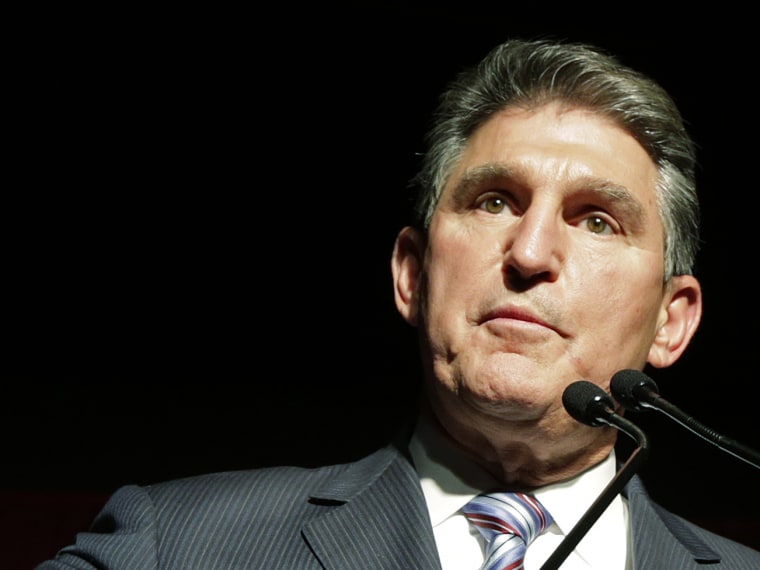One of the architects behind the bipartisan Senate bill that would have expanded background checks on gun sales signaled Tuesday that the defeated amendment could catch a second wind.
"We need five," said West Virginia Sen. Joe Manchin of the votes he needed to whip, as he took his fight for background checks to New York. Citing Sen. Harry Reid's discussion of bringing the bill up for another vote, Manchin was unequivocal: "It's coming back." He was also naming names.
Arkansas Democrat Mark Pryor is "one of the most beautiful people you'll ever meet," Manchin noted, before ticking off the reasons that Pryor should reverse his vote. The "hardcore right" will never vote for him anyway, Manchin predicted, "because he has a 'D' by his name." So Pryor could come around for background checks, solidify his centrist standing and get re-elected.
Politicians don't usually like high-profile reversals, but there are signs that the politics of gun regulation are moving swiftly.
As Manchin addressed a crowd of policy and media elites in Manhattan (he had top billing at the Atlantic's Ideas conference), there were new rumblings on gun regulation back in Washington.
On Tuesday morning, Republican Sen. Jeff Flake announced that he might reverse his opposition to background checks, if certain online sales were exempted.
Manchin says he is game. "I can't go back in and create a hole in checks on Internet or gun shows just to get your vote," he stressed, but he will add clarifying language to the bill to ensure that private family sales could occur online.
And while the NRA took a victory lap at its annual conference this weekend, Manchin criticized the organization as increasingly out of touch with most gun owners, a theme he has also hit in media appearances this week.
"The leadership is taking membership in the wrong direction," said Manchin, (who has earned the NRA's "A" rating as a Democrat). He repeated his criticism that the NRA is misleading people by falsely claiming that background checks will lead to confiscating privately held weapons. Manchin hasn't spoken with the NRA's Wayne LaPierre, he added, since he introduced his legislation.
Manchin made one other big point about how his bill is mischaracterized and misunderstood.
When moderator Margaret Carlson, a Bloomberg View columnist, asked him about gun control, Manchin interrupted to insist that this debate is not about regulating actual guns. It's not even about "universal" background checks, a term that he believes has become confused and even toxic for many gun owners, who associate it with registries and confiscation. The bill is about "mental and criminal" checks, he said, and that's how advocates should pitch it.
I asked former Obama campaign spokesman Ben LaBolt about Manchin's phrasing, and he agreed it was a better message strategy than universal background checks. "It's a better frame and a truthful one," Labolt said.
It's one thing when politicians hide their goals in Orwellian branding, like the Patriot Act, and another when they appeal for words to actually convey a policy with some detail. Background checks do not constitute significant "gun control," almost by definition, because they do not regulate the physical dimensions of guns. That's a contrast to laws that restrict certain features of guns or the available ammunition (Examples include the now-expired Federal Assault Weapons Ban, or the clip rules in the Safe Act, which New York enacted after the mass murder in Newtown.)
Ultimately, Manchin seems to realize that he needs more than new votes. The gun debate desperately needs a new language, and a new cast of gun rights leaders willing to tackle these policy battles with good faith and honesty, rather than scaring and misleading their supposed constituents.
